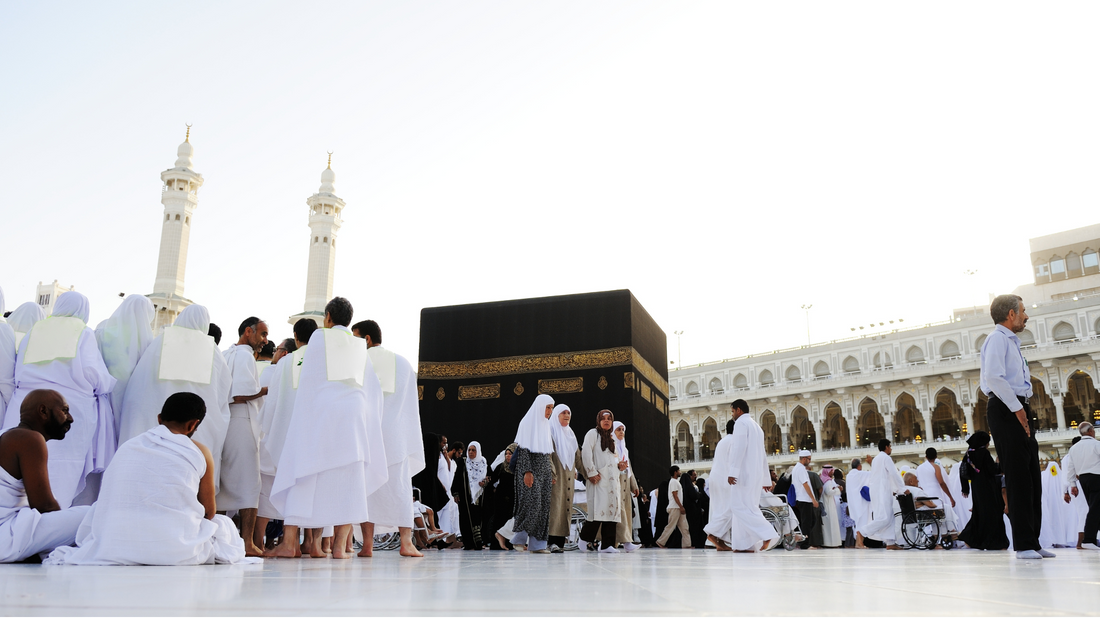
Health Issues Faced by Hajis During Hajj: How to Stay Safe
Share
Performing Hajj is a spiritual and physical journey that demands emotional resilience and bodily strength. The vast number of pilgrims, harsh weather conditions, and strenuous rituals can lead to various health problems if proper precautions are not taken. Here’s a comprehensive guide on health problems in Hajj, practical Hajj safety tips, common diseases during Hajj, and practical advice on preventing them.
Heatstroke and Dehydration
One of the most common health concerns during Hajj is heatstroke, particularly in the scorching Saudi summer. Temperatures can exceed 45°C (113°F), and pilgrims often walk long distances under direct sunlight. Prolonged exposure can cause dehydration, fatigue, confusion, and even organ failure.
How to Stay Safe:
-
Wear light-colored, breathable cotton clothing.
-
Always carry a refillable water bottle and drink water frequently.
-
Use umbrellas and cooling towels.
-
Avoid peak heat hours (noon to 3 PM) for rituals.
Respiratory Infections and Airborne Diseases
Due to the massive congregation of people from around the world, the Hajj becomes a hotspot for respiratory illnesses. Diseases like influenza, MERS-CoV, and the common cold spread rapidly in congested areas.
Prevention Tips:
-
Wear a disposable surgical mask in crowded places.
-
Maintain hand hygiene with alcohol-based sanitizers.
-
Avoid close contact with coughing individuals.
-
Get vaccinated for flu and pneumonia before departure.
Gastrointestinal Infections
Poor food handling or drinking contaminated water can cause diarrhea, vomiting, and food poisoning—a common occurrence among Hajis.
How to Avoid:
-
Drink only sealed bottled water or use water purification tablets.
-
Eat hot, freshly cooked meals.
-
Avoid street food and cut fruits exposed to the air.
-
Wash your hands before eating.
Blisters and Foot Infections
The intense walking across rocky paths and heat-emitting marble floors causes foot blisters, fungal infections, and cracked heels.
Protection Methods:
-
Use quality walking sandals or shoes with good cushioning.
-
Keep your feet clean and dry; use foot powder.
-
Change socks regularly.
-
Use antiseptic ointment for blisters immediately.
Chronic Disease Management (Diabetes, Hypertension, Asthma)
Many Hajis are elderly or suffer from chronic illnesses. Managing medication and avoiding complications during Hajj is crucial.
How to Prepare:
-
Carry extra medicines in hand luggage.
-
Keep a medical summary letter from your doctor.
-
Use a pill organizer to track doses.
-
Wear a medical ID bracelet for conditions like diabetes or epilepsy.
Skin Infections and Rashes
Sweating, heat, and friction can cause rashes, boils, and fungal infections, especially in the armpits and groin areas.
Care Tips:
-
Use antifungal powders or talcum powder in sensitive areas.
-
Bathe regularly and wear clean undergarments.
- Apply barrier creams like zinc oxide for rash prevention.
Injuries from Stampedes and Slips
Overcrowding in areas like the Jamarat Bridge or Tawaf can lead to accidental injuries, bruises, or even stampede casualties.
Preventive Measures:
-
Follow group leaders and maintain calm.
-
Avoid rushing or pushing during rituals.
- Be mindful of slippery floors during ablution.
Mental Exhaustion and Sleep Deprivation
The journey's stress and lack of sleep often result in mental fatigue, irritability, and disorientation among pilgrims.
Safety Measures:
-
Schedule rest times.
-
Stay hydrated and eat light meals.
- Maintain spiritual calm through prayer and reflection.
Eye Infections and Dust Irritation
Wind and sand can cause redness of the eye, itching, or conjunctivitis, especially for contact lens wearers.
Protection Tips:
-
Wear UV-protective sunglasses.
-
Avoid using contact lenses; switch to glasses.
-
Use artificial tears to rinse dust out of the eyes.
Insect Bites and Skin Allergies
Mosquitoes and bugs can cause bites, swelling, and allergic reactions in sleeping or resting areas.
How to Stay Safe:
-
Use insect repellents and mosquito nets.
-
Sleep in ventilated, clean areas.
-
Avoid scented lotions that attract insects.
Essential Safety Tips from Al Madni Traders
At Al Madni Traders, we care deeply about the well-being of our fellow Hajis. That’s why we offer health and hygiene essentials for Hajj, including travel-friendly tasbeehs, Zam Zam water, Ajwa dates, prayer mats, and fragrance-free skincare kits—all packed with convenience and care. Visit our website to explore affordable Hajj gift sets and essentials trusted by thousands of returning pilgrims. Staying safe during and after Hajj starts with proper planning, and we are here to support your sacred journey.
Conclusion
Understanding and preparing for the health issues faced by Hajis during Hajj is not just about physical safety—it’s a vital step to ensure spiritual focus and fulfillment. By following the above Hajj safety tips, every pilgrim can significantly reduce the risk of illness and enjoy a smoother, spiritually rewarding journey.
